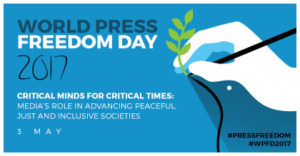Why The Information Life Cycle Is Important Today
 In the age of fake news and alternative facts, real facts still matter. The good thing about the internet is that you have access to a wealth of information at the tip of your fingers. The bad thing about the internet and social media is that we sometimes have a hard time deciphering what is fact or fiction.
In the age of fake news and alternative facts, real facts still matter. The good thing about the internet is that you have access to a wealth of information at the tip of your fingers. The bad thing about the internet and social media is that we sometimes have a hard time deciphering what is fact or fiction.
I went to this seminar last week on the importance of the information life cycle when looking at events that happen and how to reflect on them as time goes by. I found it really interesting.
Here it is:
The Day of an Event
Television, Social Media, and the Web
- The who, what, why, and where of the event
- Quick, not detailed, regularly updated
- Authors are journalists, bloggers, social media participants
- Intended for general audiences
The Day After an Event
Newspapers
- Explanations and timelines of the event begin to appear
- More factual information may include statistics, quotes, photographs, and editorial coverage
- Authors are journalists
- Intended for general audiences
The Week or Weeks After an Event
Weekly Popular Magazines and New Magazines
- Long form stories begin to discuss the impact on society, culture, and public policy
- More detailed analyses, interviews, and various perspectives emerge
- Authors range from journalists to essayists, and commentary provided by scholars and experts in the field
- Intended for a general audience or specific non-professional groups
Six Months to a Year or More After an Event
Academic, Scholarly Journals
- Focused, detailed analysis and theoretical, empirical research
- Peer-reviewed, ensuring high credibility and accuracy
- Authors include scholars, researchers, and professionals
- Intended for an audience of scholars, researchers, and university students
A Year to Years After an Event
Books
- In-depth coverage ranging from scholarly in-depth analysis to popular books
- Authors range from scholars to professionals to journalists
- Include reference books which provide factual information, overviews, and summaries
- Reports from federal, state, and local governments
- Authors include governmental panels, organizations, and committees
- Often focused on public policy, legislation, and statistical analysis


